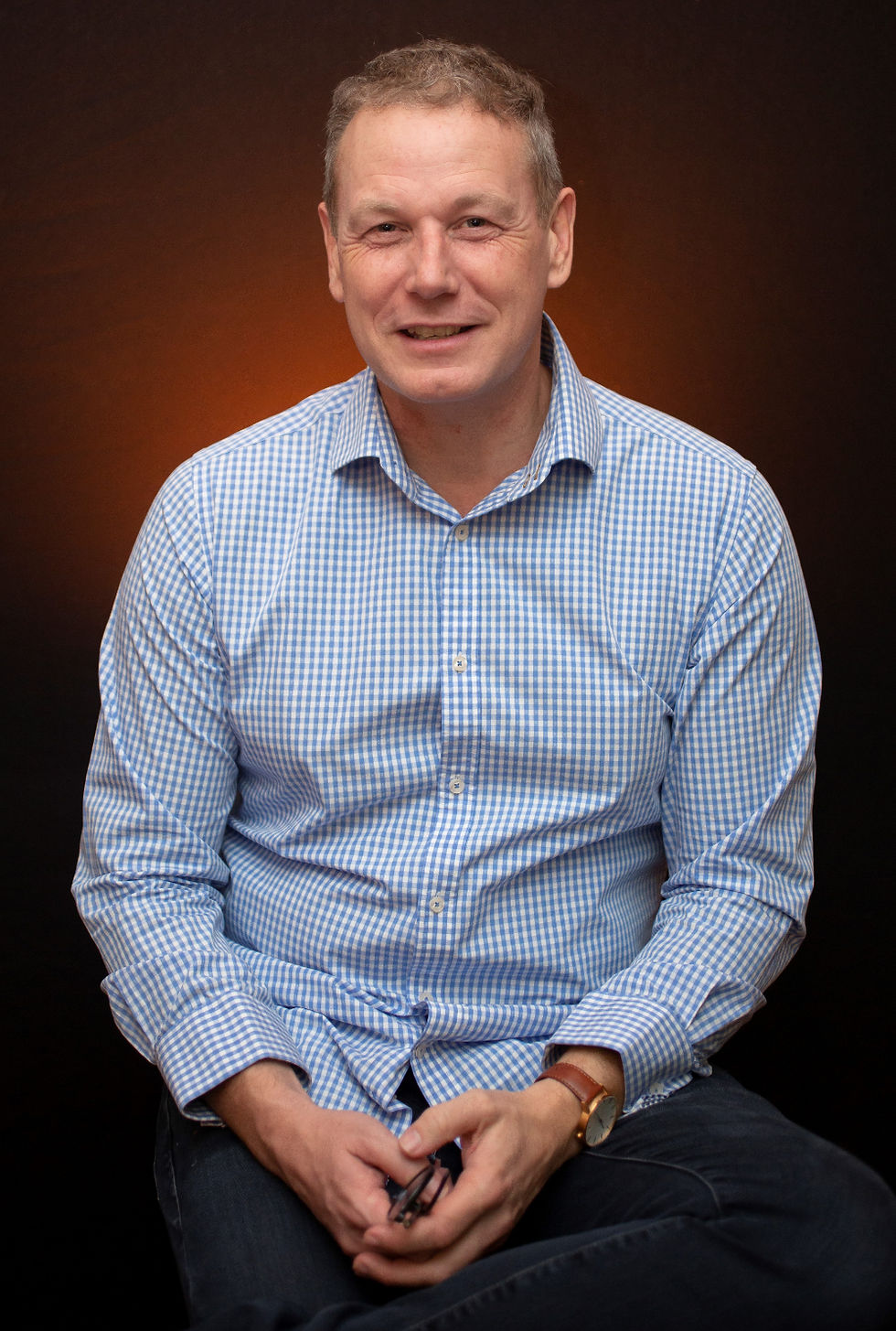Member Spotlight - Tim Carey
- May Chi

- May 26, 2025
- 3 min read
Updated: Sep 14, 2025
Interviewed by May Chi - Chapter Secretary

Many of you may know Tim already and love him for his candidness. Tim is a Sydney based psychologist who came to the field in his 30s. He also spent 15 years working in disability as a carer; and before that, was overseas for many years having a jolly good time.
Tim’s approach to psychology has always been to 'go where you’re doing the most good'. He currently finds this to be when working with adults and teenagers using mindfulness-based therapies and aspects of eastern and western philosophy.
Originally from Melbourne, Tim settled into the Sydney scene and loves it here. However, he does miss the pizza, steamed dim sims and live music that Melbourne always does better.
He’s also a passionate Hawthorn supporter. His favourite pastime is playing the drums but feels the label ‘musician’ to be an overreach of his percussion abilities, so would never dare describe himself as such.
How did you come across CBS? What was your first impression?
I first stumbled across CBS via reading the Russ Harris book The Happiness Trap while I was a provisional psychologist, introducing me to ACT. This was a very much an OMFG! type of epiphany, as it fitted perfectly with a lot of the mindfulness I’d been tinkering with on my own for a few years. From there on, its been a case of follow my curiosity and bliss, and meeting fellow travellers on the CBS/ACT trail.
Has this changed over time?
Yes, definitely. At first, I was just reading and then being my own lab rat, trying all this defusion, creative hopelessness type stuff on myself and then seeing what happened. I was soon struck, and fascinated, at the seemingly endless possibilities that ACT offered. Since then, I’ve also looked into mindfulness from a secular Buddhist type perspective (mindfulness of mind) and have kneaded this into how I use ACT with my clients. All the while being my own lab rat. In fact, I feel a certain affection for Remy, the rat, and main character, in the film Ratatouille.
I still think Steve Hayes doesn’t receive the accolades he truly deserves for what he’s brought to the practice of psychology, and the benefit CBS/ACT has given to people. I mean, I won’t pretend to know much about RFT (editor's note: Relational Frame Theory), but when I’m watching someone talk about RFT (i.e. Tim McLaughlin) it’s like looking through a telescope into the night sky and getting an awe-inspiring, teeny-weeny glimpse of just how huge the universe is, and an appreciation for the scientists for uncovering this stuff.
What do you think is still needed for the promotion of a greater understanding of contextual behaviour?
Absolutely - while I would love to see CB have a wider/larger audience, I’m also wary of it growing too fast too soon. I feel like I see this with mindfulness and it having a slant of becoming a wellness technique taught by social media influencers, or at executive leadership trainings. The best things take time, and I put CBS/ACT in that category.
How would you say contextual behavioural principles are practically applied in psychotherapies?
Geez, I don’t know how to answer that one, really - in heaps of different ways! Too many to mention, or for me to even know!
You are passionate about starting a peer group for ACT/ CBS in your local area. What are the benefits of finding community on your ACT journey?
Humans are social creatures, and we need input from others to get anywhere. Everything I’ve ever learnt about CBS/ACT has come from others. There’s no way I’m smart enough to come up with this stuff on my own!
I want to learn from others, but also share what I’ve learnt from being my own lab rat or guinea pig. So for people in NSW, please look me up - I’m not hard to find!
If you’d like to link in with Tim and start a peer group in Sydney, you will find him at Flexible Thinking.



Comments